Annual Conference 2014
Saturday, December 6, 2014
60 Washington Square South, across from Washington Square Park, New York City
google maps
Online registration is located at the bottom of the page.
You may also download the conference brochure to register by mail.
Download flier
The Layered Self
Linking Motivation and Intervention in Modern Analytic Technique
Freud found that “the psychical mechanism comes into being by a process of stratification, with successive registrations representing the psychical achievements of successive epochs…” A layered self is thus created in which various developmental mental states are more or less permeable and accessible to each other. Psychic development is not a journey in which one destination is left behind to be replaced by another. The various levels of organization remain available and provide the basis for regression throughout life. Even within a fifty-minute hour, different levels of emotional and psychic development may be activated. Patients can regress to autistic and narcissistic states, be dominated by hostility, or experience the need for a loving connection.
The morning session of this conference is devoted to early dynamics of psychic motivation. Josie Oppenheim will speak about the use of metaphor to maintain fantasied connections to our earliest objects. Sara Sheftel will present a paper about the desire for exclusive possession as an underlying motivation in individuals and groups.
The afternoon session will focus on clinical interventions to work with the multi-layered minds of our patients. Barbara D'Amato offers techniques for use with adolescent patients, who vacillate between primitive and more integrated functioning. Faye Newsome argues for the willingness of the analyst to function as the “bad” object in clinical practice.
The audience is invited to ask questions and make comments after each session, and workshops led by faculty will be offered after the program. (See registration form to choose a leader.) The day concludes with a wine and cheese social.
From primitive fears to the safety of metaphor
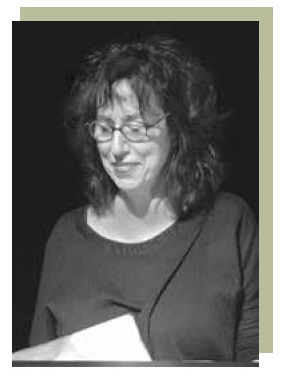 Psychoanalytic reconstructions of primitive mental states describe the infant’s fears of “falling forever” (Winnicott, Mitrani), fantasies of omnipotent control (Symington), and dread of an endless void, a “black hole” (Bick, Tustin). What is the genesis of such desperate states? Josie Oppenheim considers that these primitive anxieties may represent the result of an evolutionary loss that was visited upon our species as we hovered between nonhuman primate and human being. While the fossil evidence of a “missing link” between great ape and man eludes us, Oppenheim suggests that it was the pressure to use metaphoric thinking to survive this evolutionary loss that was the key that turned the lock and set us on our path to humanness. She explores how we came to be a species that must turn away from the concrete in favor of a metaphoric engagement with self and other and how psychoanalysis, established as a metaphor that creates and examines metaphors, is supremely suited to the specific task the human animal must accomplish.
Psychoanalytic reconstructions of primitive mental states describe the infant’s fears of “falling forever” (Winnicott, Mitrani), fantasies of omnipotent control (Symington), and dread of an endless void, a “black hole” (Bick, Tustin). What is the genesis of such desperate states? Josie Oppenheim considers that these primitive anxieties may represent the result of an evolutionary loss that was visited upon our species as we hovered between nonhuman primate and human being. While the fossil evidence of a “missing link” between great ape and man eludes us, Oppenheim suggests that it was the pressure to use metaphoric thinking to survive this evolutionary loss that was the key that turned the lock and set us on our path to humanness. She explores how we came to be a species that must turn away from the concrete in favor of a metaphoric engagement with self and other and how psychoanalysis, established as a metaphor that creates and examines metaphors, is supremely suited to the specific task the human animal must accomplish.
Josie Oppenheim, LP, NCPsyA, is a training analyst and faculty member at CMPS. She has served on the editorial board of the International Forum for Psychoanalytic Education and is a host on the award-winning podcast New Books In Psychoanalysis. Ms Oppenheim was cofounder and Artistic Director of the Stella Adler Conservatory Theater, has published numerous articles on psychoanalytic and cultural topics, and is a recipient of the Phyllis W. Meadow Award for Excellence in Psychoanalytic Writing.
Exclusive Possession
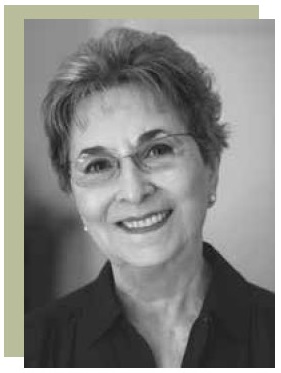 Freud (1931) used the term “exclusive possession” in two different contexts: first, in referring to the Oedipus complex in which the child desires exclusive possession of the parent of the opposite sex and exclusion of the parent of the same sex; second, in referring to the child’s primal love which “knows no bounds, demands exclusive possession, is satisfied with nothing less than all.” An astonishing statement of far-reaching significance followed: “Those first impulses of libido have an intensity of their own which is greater than anything that comes later and may indeed be said to be incommensurable with any other force.” Freud’s words illuminate his profound awareness of primitive emotional life, identifying it as the precursor to the Oedipus complex, and anticipating the future direction of psychoanalysis. This paper will present theoretical perspectives and clinical material to illustrate how the development and vicissitudes of primal love impact later life.
Freud (1931) used the term “exclusive possession” in two different contexts: first, in referring to the Oedipus complex in which the child desires exclusive possession of the parent of the opposite sex and exclusion of the parent of the same sex; second, in referring to the child’s primal love which “knows no bounds, demands exclusive possession, is satisfied with nothing less than all.” An astonishing statement of far-reaching significance followed: “Those first impulses of libido have an intensity of their own which is greater than anything that comes later and may indeed be said to be incommensurable with any other force.” Freud’s words illuminate his profound awareness of primitive emotional life, identifying it as the precursor to the Oedipus complex, and anticipating the future direction of psychoanalysis. This paper will present theoretical perspectives and clinical material to illustrate how the development and vicissitudes of primal love impact later life.
Sara Sheftel, PhD, LP, is training analyst, supervisor, and faculty member at CMPS and NYGSP and is Director of Continuing Education at CMPS. Formerly a concert violinist, her doctoral dissertation was on Mozart and his mother. Dr Sheftel has published articles on various psychoanalytic topics and was editor of Just Say Everything: A Festschrift in Honor of Hyman Spotnitz. She lectures frequently on Spotnitz, and is preparing a manuscript tracing the history and development of Modern Psychoanalysis as a school of clinical thought.
Adolescence: A battleground for psychic integration
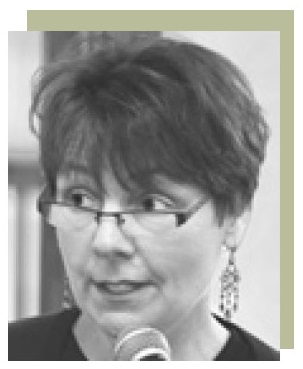 Adolescence is the ultimate manifestation of psychic oscillations among the many parts, or layers, of the developing psyche. Maturations, regressions, and repetitive behaviors are seen ever more clearly when treating teens because of the developmental disequilibrium typical of this period. At one moment we observe a clear-thinking young person, and, in the blink of an eye, we might watch her regress with infantile outbursts, all the while perplexed by her own unsettling behavior. Explanations and all reason become futile. Feeling states and tone are the only available leverage. A range of pathologies can further complicate the typical ‘psychosis’ that we know as adolescence. Separation and individuation and the concomitant psychic integration are the tasks of adolescence. It is the analyst’s charge to journey through this psychic process with each young patient, intervening with appropriate techniques specific to each case. This presentation describes clinical examples in which emotional communications rather than rational guidance or discourse resolve resistances to treatment and facilitate maturation. A spectrum of psychic states, fluctuations, and the analyst’s clinical interventions are examined.
Adolescence is the ultimate manifestation of psychic oscillations among the many parts, or layers, of the developing psyche. Maturations, regressions, and repetitive behaviors are seen ever more clearly when treating teens because of the developmental disequilibrium typical of this period. At one moment we observe a clear-thinking young person, and, in the blink of an eye, we might watch her regress with infantile outbursts, all the while perplexed by her own unsettling behavior. Explanations and all reason become futile. Feeling states and tone are the only available leverage. A range of pathologies can further complicate the typical ‘psychosis’ that we know as adolescence. Separation and individuation and the concomitant psychic integration are the tasks of adolescence. It is the analyst’s charge to journey through this psychic process with each young patient, intervening with appropriate techniques specific to each case. This presentation describes clinical examples in which emotional communications rather than rational guidance or discourse resolve resistances to treatment and facilitate maturation. A spectrum of psychic states, fluctuations, and the analyst’s clinical interventions are examined.
Barbara D’Amato, Psya.D, LP, has been treating adolescents, children, and families for over 30 years. She has written numerous papers on emotional communication, including “Teaching Modern Psychoanalysis: Technique in the Classroom,” and “Emotional Communication: Resolving a Resistance to Feeling Hate.” She is a CMPS, NYGSP, and BGSP faculty member and is Director of the CMPS Extension Division.
Using our unconscious to make the bad object transference therapeutic.
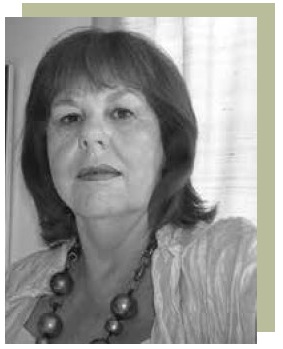 As we think about “the layered self,” we are reminded of the early phase of psychic life when the sensations and impulses for tension relief are intense, leading to the gradual development of an experience of me/not-me. All that is good is me and all that is tension-producing is not-me. When we work clinically, these early sensations are aroused again, both in the analysand and in us. Using these states of being therapeutically requires that we focus on the needs, wishes, and fears hidden by the patient's conscious material. If the person is projecting the not-me parts of himself, we may seek to avoid any awareness of this because we have needs, wishes, and fears that make us want to avoid the turbulence and danger of such projections. Often we are tempted to console, nurture, offer advice, or stay with the conscious material rather than letting ourselves become aware of the unconscious material struggling for expression,
As we think about “the layered self,” we are reminded of the early phase of psychic life when the sensations and impulses for tension relief are intense, leading to the gradual development of an experience of me/not-me. All that is good is me and all that is tension-producing is not-me. When we work clinically, these early sensations are aroused again, both in the analysand and in us. Using these states of being therapeutically requires that we focus on the needs, wishes, and fears hidden by the patient's conscious material. If the person is projecting the not-me parts of himself, we may seek to avoid any awareness of this because we have needs, wishes, and fears that make us want to avoid the turbulence and danger of such projections. Often we are tempted to console, nurture, offer advice, or stay with the conscious material rather than letting ourselves become aware of the unconscious material struggling for expression,
but which at this point has no language except the action of projection. The question I am interested in exploring is “What assets do we have that help us use our unconscious to allow the bad object transference to be therapeutic?”
Faye Newsome, MA, LP, serves on the faculty of CMPS, NYGSP, and BGSP. Ms Newsome is director of the One-Year Program, serves on the CMPS Board of Administrative Directors, and is Chairman of the CMPS Board of Trustees.
Q. & A. Sessions with audience and speakers
Following the morning and afternoon conference sessions, Conference Chair, Dr. Lucy Holmes, will lead the audience and speakers in a question-and-answer session.
Lucy Holmes, PhD, LP, is a faculty member and training analyst at The Center for Modern Psychoanalytic Studies, the New York Graduate School of Psychoanalysis, and the Center for Group Studies. Author of numerous articles in several psychoanalytic journals, she lectures all over the country, and is the author of two books,The Internal Triangle and Wrestling with Destiny.

Workshop leaders:June Bernstein |
Workshops led by CMPS faculty conclude the day’s agenda. Participants are encouraged to attend these groups where they will be able to talk about their impressions, thoughts, and feelings in a more intimate setting. Workshops are assigned on a “first-come, first-served” basis when registration accompanied by admission fee is received. Workshops may not exceed 20 participants. Select a workshop choice by filling out the space designated on Registration Form. If paying by credit card by phone or fax, your workshop selection may be made at that time. Selection may also be made on the day of the conference, subject to availability. |
Purchase tickets below:
Regular ticket: |
Student ticket: |
Group of 10: |
|
|
Regular ticket with early workshop registration |
Student ticket with early workshop registration |

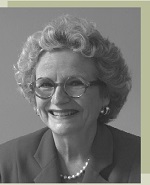

 NYGSP
NYGSP BGSP
BGSP ACAP
ACAP NAAP
NAAP New Books in Psychoanalysis
New Books in Psychoanalysis